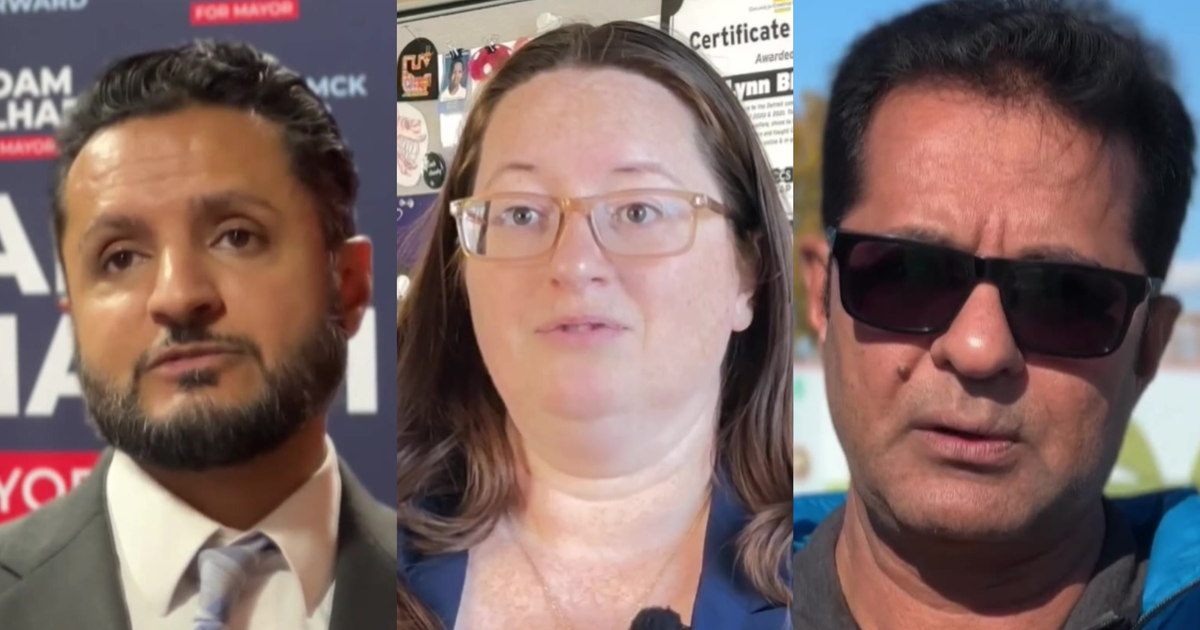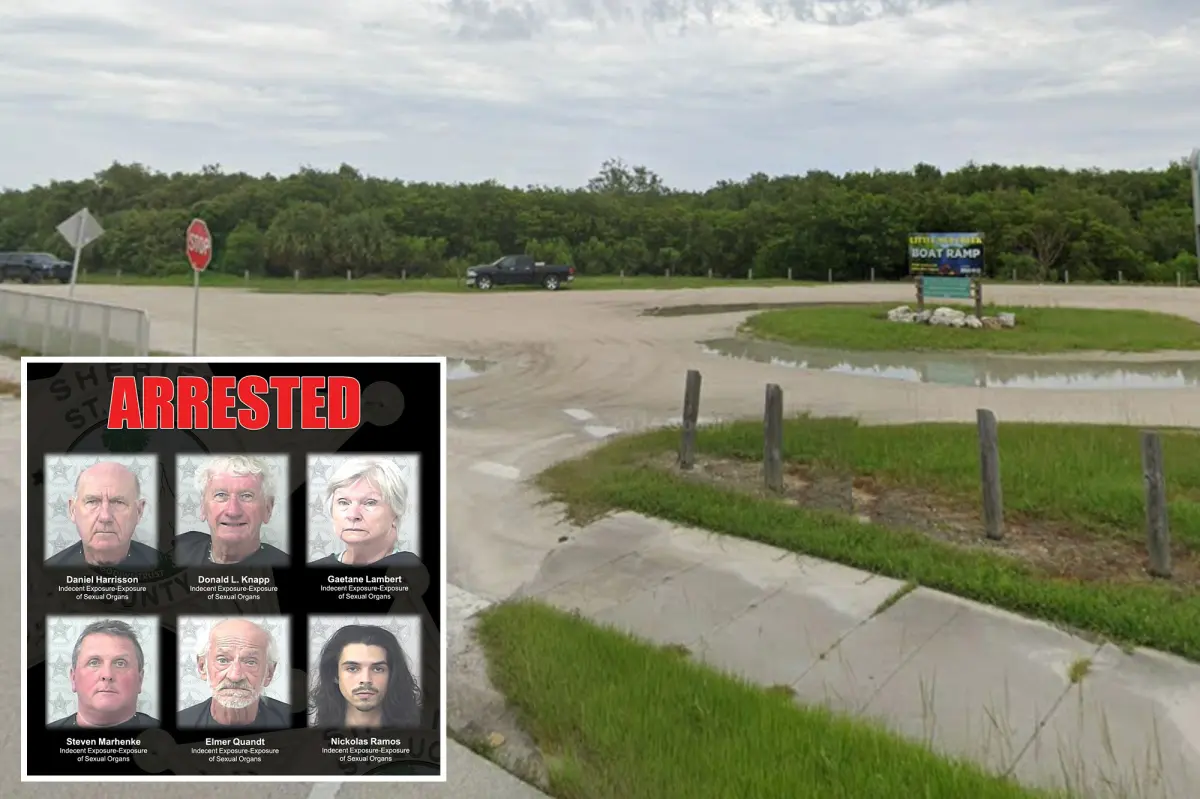Copyright thehindu

At least six persons were killed and five injured after a passenger train collided with a goods train near the Bilaspur railway station in Chhattisgarh on Tuesday (November 4, 2025), officials said. The Railway Ministry has ordered an inquiry. Rescue operations are currently under way. “An unexpected incident occurred today near Bilaspur station, involving the derailment of a freight train and a local MEMU. Six people died and five passengers were injured. They are receiving appropriate treatment at nearby hospitals,” stated the South East Central Railway through a bulletin issued at 7.35 p.m. The Railways said that as per the preliminary assessment, the DEMU train crossing the signal at danger seemed to be the cause of the crash. Speaking to The Hindu over the phone, Bilaspur District Collector Sanjay Agrawal confirmed that four deaths had been reported and several others were injured. He said the total number of injured passengers was still being compiled as some were trapped under a coach. “At least one person is critically injured,” he added. The incident occurred around 4 p.m., when the MEMU passenger train was heading to Bilaspur from Gevra in neighbouring Korba district, Railway officials said. A police officer added that the passenger train rammed into a goods train from behind between Gatora and Bilaspur railway stations. DMK moves Supreme Court against SIR, says it is de facto NRC Tamil Nadu ruling party Dravida Munnetra Kazhagam’s (DMK) organising secretary R.S. Bharathi moved the Supreme Court on Monday against the second phase of Special Intensive Revision (SIR) exercise announced by the Election Commission of India in 12 States and Union Territories, saying the process amounts to “constitutional overreach” and is a thinly-disguised, de facto National Register of Citizens (NRC). “By imposing citizenship-like burdens of proof on electors, the SIR appears to be acting beyond its statutory purpose, effectively functioning as a de facto National Register of Citizens (NRC). If the SIR order of October 27 is not set aside, the exercise can arbitrarily and without due process, disenfranchise lakhs of voters from electing their representatives, thereby disrupting free and fair elections and democracy in the country, which are part of the basic structure of the Constitution,” Bharathi submitted a petition on behalf of the party drawn by advocate Saushriya Havelia and settled by senior advocate N.R. Elango. The petition, the first challenge in the apex court against the second phase of the SIR commenced from October 28, highlighted the lack of due process as well as the unreasonably short timeline for the SIR of the electoral roll in Tamil Nadu as designed to exclude voters. “The unilateral imposition of such an unprecedented, resource‑intensive and socially disruptive process on a State, without consultation or demonstrable administrative exigency, transgresses the federal structure of the Constitution, recognised as part of its basic structure. In bypassing statutory safeguards, the State concerned has effectively been reduced to a mere implementing agency for centrally determined, unilateral processes posing a grave risk of disenfranchising large numbers of bona fide voters,” the DMK leader highlighted. The plea, filed through advocate Vivek Singh, said a Special Summary Revision had already been conducted in Tamil Nadu between October 2024 to January 6, 2025. This exercise had addressed issues such as migration, death and deletion of ineligible voters. The existing electoral roll in Tamil Nadu had been updated and published on January 6, 2025 and continuously updated since then. Referring to how the Bihar SIR had excluded registered electors en masse and introduced new and stringent requirements for voters to provide proof of citizenship, particularly for those not registered in the 2003 electoral roll, Bharathi said the Election Election commission of India, through its SIR, was seeking to supplant the existing statutory framework, which already governs the preparation and revision of electoral rolls. “The manner in which the SIR has been directed to be conducted is found neither in Representation of the People Act (ROPA), 1950 or in the Registration of Electors Rules, 1960. Additionally, Section 28(3) of ROPA requires all Rules to be notified in the Official Gazette and laid before Parliament. No such notification has been issued for the SIR and the same has not been laid before the Parliament. Therefore, the SIR is without the force of law and lacks statutory basis,” the petition argued. It noted that the orders even allow Electoral Registration Officers to refer cases of ‘suspected foreign nationals’ to the competent authority under the Citizenship Act, 1955, without due process. “The question whether a person is a foreigner is a question of fact and has to be determined by the Union government under the Citizenship Act, 1955,” the petition said. Bharathi submitted that neither ROPA nor the 1960 Rules mention any “enumeration forms” in the revision of electoral rolls. Besides, commonly available documents such as ration cards, PAN Cards, and EPIC have been excluded in the SIR. The petition, which is the first to challenge the second phase of the SIR, said the exercise’s rigid and arbitrary document requirements fail to accommodate the realities of disadvantaged communities who face chronic under-documentation. “They disproportionately burden the youth, migrants, women, economically weaker sections and marginalised communities, who are least likely to be able to furnish such records within the unreasonably truncated timeline prescribed. This inequity is further aggravated by the arbitrary exclusion of widely accepted government issued identity documents,” it noted. SIR 2.0: Mamata tears into BJP, ECI; warns of Modi govt’s fall if one eligible voter struck off rolls Mounting a blistering attack on the BJP and the Election Commission of India (ECI), West Bengal Chief Minister Mamata Banerjee on Tuesday accused them of turning the ongoing Special Intensive Revision (SIR) of voter lists into a political tool for a “silent, invisible rigging” ahead of the 2026 Assembly polls. She warned that the fall of the Narendra Modi government would be “inevitable” if even a single eligible voter was deleted from West Bengal’s rolls during the SIR conducted by the ECI in the State. Leading a massive anti-SIR rally through the heart of Kolkata, from Dharmatala to Jorasanko — the ancestral home of Rabindranath Tagore, the Chief Minister, accompanied by her nephew and party’s national general secretary Abhishek Banerjee, alleged that the BJP and the ECI were “colluding to erase voters from opposition-ruled states” while sparing the ones governed by the saffron party. “The BJP is conducting SIR in States like Kerala, Tamil Nadu and West Bengal, but not in BJP-ruled Assam, Tripura or other northeastern states,” she thundered before a charged crowd. The Assembly polls are due in Kerala, Tamil Nadu, West Bengal Assam next year. “Why is this bias? This is clear discrimination, aimed at helping the ruling party at the Centre,” she said. The Trinamool Congress supremo warned, “If even one genuine voter’s name is struck off the rolls, the BJP government will be shaken to its core. The fall of this government will be inevitable.” Accusing the Chief Election Commissioner Gyanesh Kumar, whom she mockingly called “kursi babu”, of acting under political pressure, Banerjee said, “In 2002, Bengal’s last SIR took two years to complete. Why the hurry to finish this one in a month? Just to make Modi Babu and Amit Shah happy?” Questioning the BJP’s claim of illegal voters in Bengal, she said, “They say they will expel Bangladeshis and Rohingyas. How many Rohingyas did they find in Bihar after SIR? Just speaking Bengali doesn’t make someone a Bangladeshi. Speaking Urdu doesn’t make someone a Pakistani. Bengal’s identity cannot be insulted like this.” The TMC chief accused Union Home Minister Amit Shah of hypocrisy. “He criticises our so-called dynastic politics, yet he has appointed his own son to the highest post,” she alleged, without naming him. Taking on the Election Commission, the Chief Minister asked if the names of someone’s parents are not on the list, would they have to prove again that they were born in this state? “The Commission is creating multiple confusions in the rolls. Who will take responsibility for these mistakes? Wouldn’t it have been better to conduct this exercise after the elections? Do we have to prove our citizenship even after so many years of birth and independence?” she said. She said that the TMC would continue the fight against the issue both on the streets and in courts. “We will extend our support if they conduct the SIR after the Assembly polls. But how can you do it just months before the elections? This is nothing but a politically motivated move to intimidate voters,” she said. Supreme Court concerned over misuse of POCSO cases, says awareness needed The POCSO Act is being misused in cases of marital discord and consensual relationships between adolescents, the Supreme Court said on Tuesday, while stressing the need to spread awareness in boys and men about its legal provisions. A Bench of Justices B.V. Nagarathna and R. Mahadevan was hearing a PIL seeking directions to sensitise people about the penal provisions for rape and the Protection of Children from Sexual Offences (POCSO) Act to make the country a better place for girls and women. “One thing, we would like to remark. POCSO Act is being misused in cases of marital discords and matters pertaining to consensual relationships between adolescents. We should spread awareness in boys and men about the legal provisions,” the Bench remarked orally. The Supreme Court adjourned the PIL to December 2 and noted that some States and Union Territories had not filed a response in the matter. The Supreme Court had earlier issued notices to the Centre, the Union Ministries of Education and Information and Broadcasting and the Central Board of Film Certification (CBFC) on the plea filed by senior advocate Aabad Harshad Ponda. Ponda said there is need to inform people about the laws regarding rape and the change in such laws after the Nirbhaya case. The plea seeks several measures, including directing the Education Ministry to ask all educational institutions providing free and compulsory education to children aged up to 14 years to incorporate the penal provisions regarding offences against women and children. The subject of moral training also has to be included to ensure awareness about sexual equality, the rights of women and girls and their freedom to live with dignity, it says. “Particularly, endeavours are required to be made to change the mindset of the boys in this country, an exercise that must start at the level of school,” it states. According to it, there should be similar directions to the Information and Broadcasting Ministry, CBFC and other broadcasting authorities to highlight the awareness of the folly of committing rape and its punishments and educating the public about the POCSO Act. ‘I am broken’: Sole survivor of Air India Ahmedabad plane crash appeals for welfare package Vishwas Kumar Ramesh, the sole survivor of the June 12 Air India plane crash, on Monday appealed for a welfare package for day-to-day support as he continues to struggle with the physical and mental trauma of the tragedy. The 40-year-old British citizen of Indian heritage returned home to Leicester, in the East Midlands region of England, over a month ago, but has reportedly struggled to access the level of medical attention he requires for his post-traumatic stress disorder (PTSD). The father of a four-year-old boy who relies on his wife to get around the house spends most days in his room, consumed by the tragedy that claimed the life of his brother, Ajay, among the 242 on-board fatalities of AI171. “It is very painful... I am broken,” Vishwas Kumar Ramesh told reporters recently, during an interaction organised by Leicester community groups to highlight his plight. Air India said it remains “deeply conscious” of its responsibility towards Vishwas Kumar Ramesh and has been supporting the family through the “unimaginable period”, with over 95% of those impacted by the tragedy now having received interim payments pending the conclusion of the crash investigation. Radd Seiger, a UK-based retired lawyer who volunteers as a crisis management adviser, has taken charge as Ramesh’s spokesperson and appealed to Air India CEO Campbell Wilson to meet with the family to be able to fully assess and address the gravity of the situation. “This has had a devastating effect on the entire family, both in the UK and in India, and we are issuing a direct appeal to the Chief Executive Officer, Campbell Wilson, to come and see that for himself and then to work with us to help Vishwas Kumar,” Seiger said. “He needs a lot of help. His injuries are significant, both physical and psychological. The family also ran a fishing business in Diu which has collapsed after the crash in June, so they are suffering financially as well.” “We need Air India to step forward and to help us put a welfare package together for Vishwas Kumar and his family,” he said. Seiger, who will be travelling to Diu next week to gather further information, said the 21,500-pound flat interim compensation from the airline is not enough to meet the pressing daily needs of the family. “At the moment, the reality is Vishwas Kumar is sitting alone in his bedroom, clearly suffering, day in, day out, and it’s urgent that they come and meet with us to really begin to help him,” he said. “We must all understand that what he went through that day, on the 12th of June, no other human being on this planet has ever had that experience. “This was a modern airliner that crashed. Everybody perished apart from him. This has never happened before, so it’s impossible for any of us to understand what he is going through psychologically. He is going to need very specialist support, certainly from a psychological point of view,” he said. The family spokesperson added that the UK’s state-funded National Health Service (NHS) is unable to support the British citizen with the level of bespoke support required. “Care for him – and indeed all families affected by the tragedy – remain our absolute priority,” Air India said in a statement. Vishwas Kumar Ramesh was seated in seat 11A when the London Gatwick airport-bound Boeing 787-8 Dreamliner crashed near the Sardar Vallabhbhai Patel International Airport in Ahmedabad soon after take-off. Women abused, shamed, and silenced online by technology-facilitated gender-based violence, says report Online spaces in India are increasingly becoming sites of gender-based violence, a report by international human rights organisations Equality Now, and the Breakthrough Trust stated. The study, titled ‘Experiencing Technology-Facilitated Gender-Based Violence in India: Survivor Narratives and Legal Responses’, shows how technology-facilitated gender-based violence is silencing women and LGBTQI+ individuals. “India’s justice system is not equipped to deal with the evolving nature of technology-facilitated gender-based violence. Legal and policy reform that is fit for purpose is urgently required to make digital spaces safer. Survivors need stronger laws, swifter justice, greater support, with tech companies taking real responsibility for harms happening on their platforms,” Amanda Manyame, Equality Now, said. Technology-facilitated gender-based violence refers to abuse enabled or amplified through digital technologies, targeting individuals based on gender or sexual identity, or by enforcing harmful gender norms. The report draws on nine survivor interviews, and 11 expert interviews (including lawyers, cybercrime police, academics, and from civil society) across Delhi, Patna, Hyderabad, Kochi, and Thiruvananthapuram. The survivors ranged from adolescents (13 to 17 years) to women in their 30s and 40s, including Dalits, journalists, actors, and LGBTQI+ individuals. Common violations include non-consensual sharing of intimate images, morphing and deepfakes, doxing publishing private or identifying information), stalking, impersonation, cyberbullying, and coordinated attacks. Vulnerability is heightened by caste, tribe, class, disability, and profession. India’s digital gender divide remains stark. Only 33% of women have ever used the Internet compared with 57% of men (National Family Health Survey-5, 2019–21). Rural men are twice as likely as rural women to have used the Internet (49% men, and 25% women). Further, 45% of the population does not access the Internet; among those who do, 82% use someone else’s phone, and of this group, 77% are women and 43% are over 35, says 2023 data from data analytics firm Kantar, and the Internet and Mobile Association of India. Perpetrators often groom children, trap them, and use videos for blackmail. Soumya, a Special Public Prosecutor in Kerala, said. Cases closed as “unnatural death” instead of sexual violence, and cross-examination targeting a child’s “character” rather than the crime are other issues she stresses. Survivors described humiliation, career setbacks, and a system that fails them. “Filing a complaint felt like another violation. I had to relive everything, only to be told it was my fault,” one survivor said. A Kerala journalist said her number was scrawled across public toilets. “I received 2,000-3,000 calls per day,” she said. “They took my karwa chauth pictures and wrote captions like ‘slutty whore’. The police could not do anything, and my case was closed,” a survivor in Patna said. A LGBTQIA+ post-graduate student in Kerala belonging to a Scheduled Tribe community faced attacks after a Pride rally. “They posted my number on porn sites and started messaging my family. I haven’t come out properly; informing them disturbed my life,” the student said. “Sending legal notices is often the only effective way to intimidate perpetrators,” a Delhi advocate who worked on the Bois Locker Room case said. A 30-year-old survivor from Idukki, Kerala, was asked to pose as a politician in sexually suggestive ways while working as a newsreader. Her employer was arrested after she complained, but she and her children faced public humiliation. The report flags gaps in India’s cyber laws — the Information Technology (IT) Act, 2000 focuses on property and data, not harm to persons. It is gender neutral but not gender responsive. The striking down of Section 66A in 2015 for violating free speech left a critical gap in safeguarding survivors, the report says. India’s richest 1% expanded its wealth by 62% between 2000 to 2023, according to a report commissioned by the South African Presidency of the G20. The study, led by Nobel laureate Joseph Stiglitz, warns that global inequality has reached “emergency” levels, threatening democracy, economic stability, and climate progress. The G20 Extraordinary Committee of Independent Experts on Global Inequality, which includes economists Jayati Ghosh, Winnie Byanyima, and Imraan Valodia, found that the top 1% globally captured 41% of all new wealth created between 2000 and 2024, while the bottom half of humanity received just 1%. Evening Wrap will return tomorrow.



